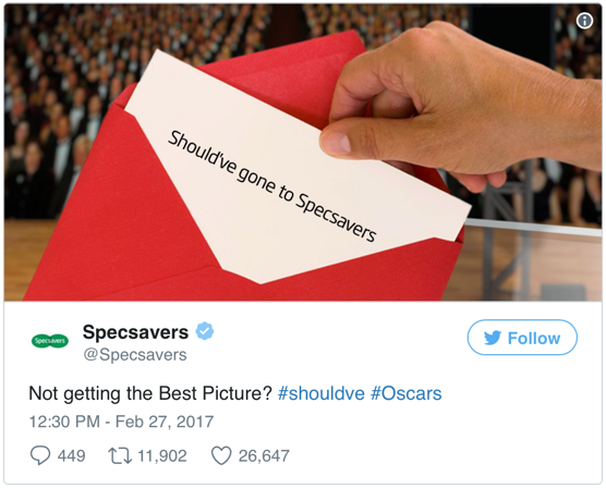The Good, the Bad, and the Just Plain Ugly of Reactive Marketing
- Ross Jones
- Sep 22, 2017
- 3 min read
Updated: Dec 6, 2019
Reactive Marketing. Even if you’re unaware of what it means, there’s no doubt you’ve seen it being used by businesses big and small. It’s a great way of getting involved in trending topics, and if you’re first on the scene, you’re likely to get plenty of attention.
That being said – that attention is not always a good thing.
Let’s start with what it means. The name itself is quite self-explanatory, as reactive marketing simply means marketing undertaken in response to the actions of a competitor. Or, quickly responding to new, trending events through channels such as social media.
It can have great benefits to your business, bringing new followers on social media, increasing sales and getting your brand out there. On the other hand, it can end dreadfully.
We take a look at some reactive marketing over the years, including the good, the bad, and the ugly!
The tweet that lasted 45 minutes!

After Carrie Fisher tragically passed away, Cinnabon, an American chain of baked goods stores and kiosks, reactively tweeted about the situated quoting “you’ll always have the best buns in the galaxy”.
Maybe it was innocent, maybe not, either way – Twitter users did not respond well, saying that Cinnabon was using the situation to promote themselves. This resulted in the tweet being deleted just 45 minutes later.
Cinnabon has since apologised
One of the best companies when it comes to reactive marketing
Yep – we’re talking about the one and only Specsavers! On multiple occasions, we’ve seen them react swiftly to trending topics.

Specsavers published a response about the recent 2017 Oscars, when presenters mixed-up the results for best picture. We all remember it, as it resulted in thousands of tweets.
The well-known optical retail chain tweeted ‘Not getting the Best Picture?’ alongside an open, red envelope which read ‘Should’ve gone to Specsavers’.
The tweet was praised on its quick-witted response, and gained over 20,000 likes & 11,000 retweets.

Another great example is when Specsavers responded to the 2012 Olympics through their marketing.
Particularly, in response to the South Korean flag mistakenly being shown instead of the North Korean flag.
This happened before a football match between Scotland and North Korea at Hampden Park. Specsavers took advantage of this, creating one of their famous “should've gone to Specsavers” adverts.
After reading about this, you’re sure to be jealous of the unfortunate turned fortunate event. Resulting in a trending hashtag, a boss accidently forwarded Security Guard Greg Heaslip’s holiday request to 3,500 staff members working at Arcadia (owners of fashion chains Topshop and Dorothy Perkins).

Twitter users saw the funny side of this, and hence the hashtag ‘#GiveGregTheHoliday’ was born.
TrekAmerica, an expert in group adventure holidays, was first to get involved. The company donated a free trip to Las Vegas, tweeting “We’re taking action and have decided to #givegregtheholiday. A TrekAmerica mini adventure with flights to Vegas. #GregGotTheHoliday!”
It didn’t stop there, as other companies got involved. Halfords donated a brand-new bike & VO5 donated some hair products to go alone with his trip to Vegas.
Greg, although very flattered by the generous gifts, stated that all he wanted was time off work to treat his wife and daughter to a trip to Chessington World of Adventures. In the end, he donated all of the free gifts to the Stephen Sutton charity.
So, is it worth jumping on the bandwagon? We’d say so! It can lead to a great deal of success, with some users even stating they’re going to purchase from a business after they use this marketing approach.
And in regard to the marketing that didn’t turn out so good, mistakes happen in every business, whether it be through reactive approaches or other methods of marketing. We can all learn from these mistakes, and it definitely makes you think twice before publishing content!







Comments